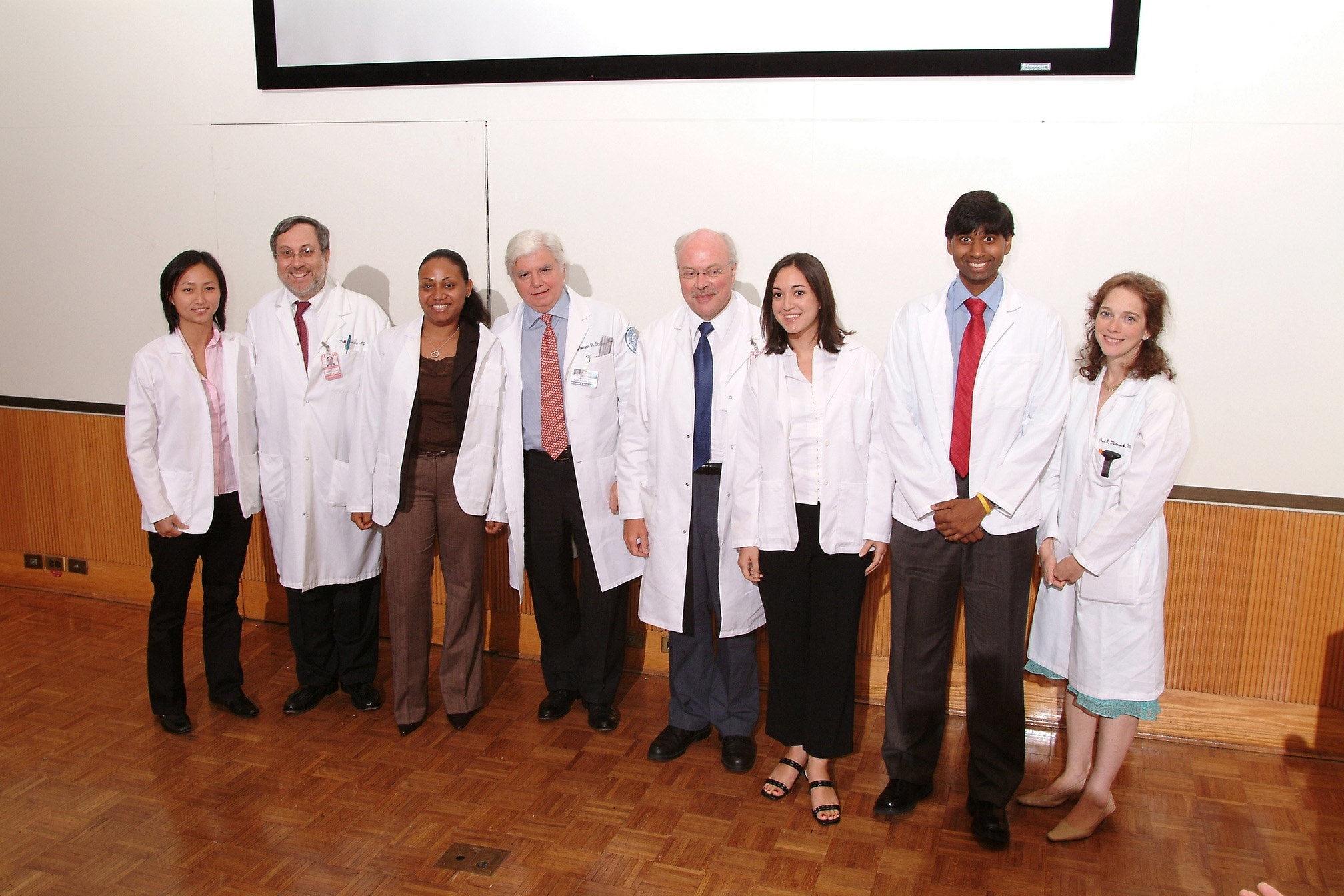Dr. Sandeep Kishore was a teenager when he experienced first-hand how global health disparities could mean the difference between life and death. After returning from a family trip to India, Dr. Kishore developed a 104 degree fever and became semi-comatose. Back in India, Tata — his grandfather's best friend with whom Dr. Kishore became close during the trip — had also fallen into a coma, and later died from cerebral malaria.
With the help of advanced medicine near his home in southwest Virginia, the teen ultimately came back from the brink of death, though doctors were never quite able to pinpoint what made him sick.
"I'm an American, and I have two physicians as parents," said Dr. Kishore, now 31 and a graduating M.D.-Ph.D. student at Weill Cornell Medical College. "I had the world's best medical care. I was horrified that if I had been a rickshaw driver's son in Hyderabad, India, I'd be dead right now."
It was a realization that changed the course of Dr. Kishore's life. What began as a cursory interest in science in high school became a deep-seated commitment to eradicating global health disparities and advancing social justice around the world. That passion has been the central current running through Dr. Kishore's nine-year education at Weill Cornell, as well as a legacy he'll leave when he graduates from the Tri-Institutional M.D.-Ph.D program on May 29: In addition to conducting research that better explains how malaria causes disease, Dr. Kishore led the development of a global health curriculum that now attracts half of all first-year medical students.
"Weill Cornell has given me an incredible platform, an opportunity, mentorship and a protected space to just fly," said Dr. Kishore, who was elected by his peers to address them at Commencement, "and I'm very thankful for it."
From the moment he arrived at Weill Cornell in 2005, Dr. Kishore was steadfast in his goal to be an instrument of change. He successfully lobbied the World Health Organization to add statins onto its essential medicines list, enabling people in developing countries to gain access to the cholesterol drug at affordable prices. (The global price is now $6 per patient per year, down from $500 to $1,200 per patient, per year.) He gave a TED talk about the critical need to create new clinical, financial and public health models to ensure that people around the globe are able to live longer and healthier. He spoke at the United Nations General Assembly, was an invited speaker for the National Academy of Sciences Institute of Medicine Board on Global Health, and founded the Young Professionals' Chronic Disease Network, a collection of 2,000 young leaders under the age of 40 who advocate for policy changes on chronic diseases. The network urges governments to provide essential medicines and health technologies to the public, as well as collect data on patients' risk factors for these conditions — smoking and diet, for example — and implement public health programs to improve health.

Dr. Kishore, second from right, receives his white coat in 2005. Credit: Pat Kuharic
But of all of his accomplishments, he's proudest of his work establishing the global health curriculum at Weill Cornell. In 2006, Dr. Kishore developed and co- taught an elective that integrated economic, scientific, clinical and public health perspectives on issues surrounding malaria. The course generated so much interest that it's now a longitudinal, four-year curriculum managed by students and faculty that focuses on major issues in global health beyond malaria.
"That's one of my proudest achievements here because it's been supported by the totality of the institution, from student to dean," he said. "We're making the extracurricular the curricular. That's important. It's intrinsic to the core mission and value of being a medical student at Weill Cornell."
In memory of Tata, Dr. Kishore had always been committed to understanding the mechanisms behind malaria. During his rotation in Dr. Kirk Deitsch's malaria laboratory — his final stop for the doctoral portion of his joint degree — he made a discovery that brings researchers one step closer to learning how malaria operates.
The human parasite that causes the most lethal form of malaria, Plasmodium falciparum, has 60 virulence genes (called var) that can kill infected people, but the parasite reveals only one gene at a time, enabling it to easily evade immune system responses that might otherwise fight the infection. Dr. Kishore discovered one protein responsible for that mechanism, and when that protein is disturbed, the parasite exposes multiple and different genes, theoretically limiting its ability to get around the body's immune responses. This finding points scientists to new opportunities to fight the disease, possibly with drugs that target that protein. For his work, he was awarded the Raymond W. Sarber Award from the American Society of Microbiology for most outstanding graduate student in microbiology.
"I think all scientists have a craving for understanding the universe," Dr. Kishore said, "but also a personal conviction and deep passion of why they're doing what they're doing.
"It's a very modest discovery," he said, "but I hope it contributed to the field and it will help elucidate a mechanism of how malaria works. That's a really cool feeling, to just incubate with nature and interrogate nature, and be able to unlock and reveal one of its secrets."

